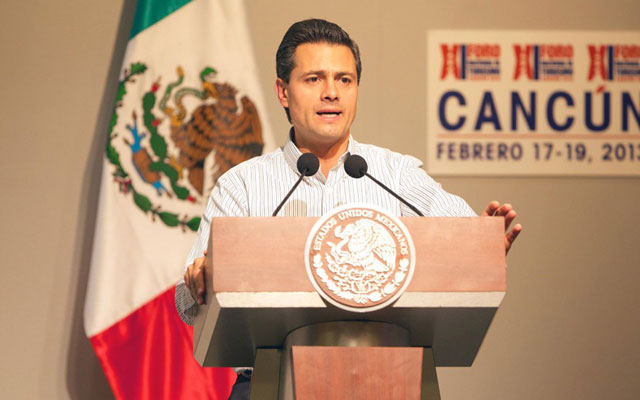Mexico Poised to Become an “Aztec Tiger”
Drew Ringley /
Newly installed Mexican President Enrique Peña Nieto is seeking to revamp Mexico’s economy, and one tool he has already pursued is labor reform.
It is long overdue. According to the 2013 Index of Economic Freedom, published by The Heritage Foundation and The Wall Street Journal, Mexico ranks below the world average in labor freedom, and Mexico’s powerful special interests have made sure previous reforms were watered-down and ineffective.
As the Index notes, an inflexible labor code makes it difficult for employers to terminate employees who, for whatever reasons, are not cutting it at work. The result: lower productivity and reduced profit margins for firms to sustain themselves during tough times.
Mexico’s teachers union—the largest in Latin America with nearly 650,000 members—provides an example of how entrenched special interests create these inefficiencies. The union promotes teachers based on loyalty and seniority—not merit. The Mexican labor code also fails to hold educators accountable for the quality of their instruction. In the end, these policies only hurt the students that educators say they are trying to help.
Peña Nieto has already convinced the leadership of his political party—the Institutional Revolution Party, historically Mexico’s “pro-union” political party—to pass legislation that curtails union power in the educational system and promotes teachers based on merit. Structural reforms like these are what are needed to transform Mexico’s sluggish economy into the “Aztec tiger” that many economists are anticipating.
As the benefits from new labor reforms begin to be reflected in Mexico’s economic performance, the country will be in an excellent position to “pounce” on its global competitors. Its proximity to the United States and participation in many free trade agreements should allow Mexico to become a major global manufacturing hub within the next five years.
Peña Nieto has a long and tough road ahead, but his reforms could establish his country as an even stronger emerging market economy on a path toward greater economic freedom and prosperity.
Drew Ringley is currently a member of the Young Leaders Program at The Heritage Foundation. For more information on interning at Heritage, please visit http://www.heritage.org/about/departments/ylp.cfm.

